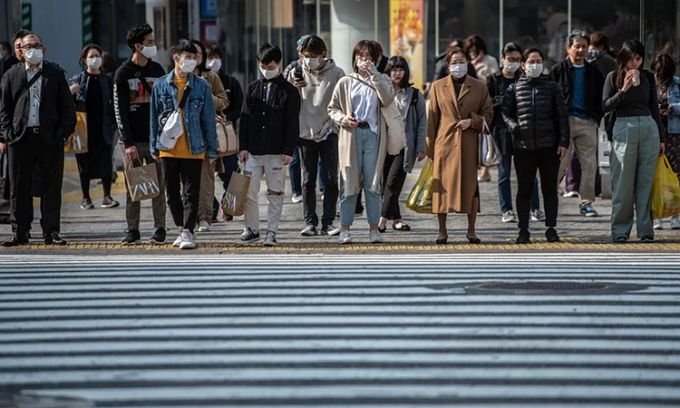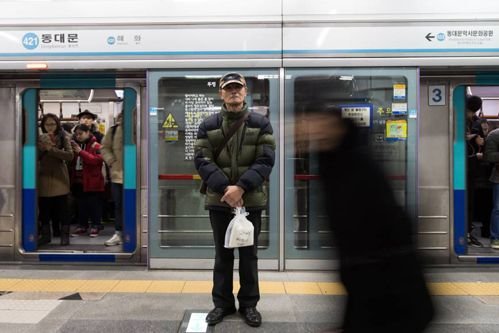Working remotely – a strange thing during Covid-19 in Japan
Japan is a country where people still have to go to the company in person instead of working remotely.
`My boss clearly said, ‘If I allow working from home, you might not be able to concentrate on work. Who knows? You might even drink alcohol,’` said a banker.
Japanese people wearing masks wait to cross the street in Tokyo in early April. Photo: AFP.
This employee added that even though customers do not want to meet face to face, his boss still thinks that employees should be present at the office to receive customer phone calls, as a way to show respect for them.
`My boss said if you don’t do that, customers will think you’re taking a break and making things easier for yourself. Working attitude is the pride of Japan,`
This exceptionally rigid work culture has made Japan one of the few developed countries that is not well prepared for remote work during the Covid-19 era.
Prime Minister Shinzo Abe on April 7 declared a state of emergency for one month in Tokyo, Osaka and five other areas most affected by Covid-19.
Prime Minister Abe’s decision came after two weeks of Tokyo recording an increase in the number of infections and increasing calls for the government to take stronger action in the fight against Covid-19.
Mr. Abe’s reluctance to act sooner and more drastically may be partly due to the realization that many businesses are not prepared to work remotely, according to management consultant Rochelle Kopp.
Technology is an important factor.
Japanese companies have been left behind by Western information technology (IT) companies.
IT departments are always so concerned about intellectual property protection and customer information security that they only allow employees to access the system using the company’s computer system.
Many employees don’t even have their own laptops, partly because they’re afraid of losing them at after-work drinks, and many don’t have wifi at home.
This is also a country where businesses still send faxes and documents are still required to have ink stamps.
Schools are closed but they do little or no online learning.
Despite bright neon lights and modern bullet trains, corporate culture in Japan seems stuck in the past, with women still facing discrimination in the workplace and in power.
This culture may explain why a salaried employee still has to wear a shirt, tie and ID card when working in the home kitchen, or why a female employee is forced to disobey.
Meanwhile, the government continuously reinforces the anti-Covid-19 message that people need to avoid gathering in tight, crowded spaces where strangers meet and come into contact with each other for long periods of time, by organizing
Japanese work culture is based on a concept called ho-ren-sou, which stands for reporting, information and consultation process.
Job descriptions are often quite vague and in this country people value teamwork more than individuals.
Not all differences in Japanese ways of working are worse than in Western countries.
`It’s like when the tide goes out, there’s only trash left on the beach,` Kopp compared.

Passengers crowded on the subway in Tokyo on March 26.
When Japan locked down, some companies were ready and some were able to meet the need for remote working.
`Last week, my boss went drinking with his employees twice. He likes to drink a lot, like to get others drunk and talk about work. I have no opinion on this. But in my opinion, if you
Thanh Tam (According to Washington Post)














Post Comment